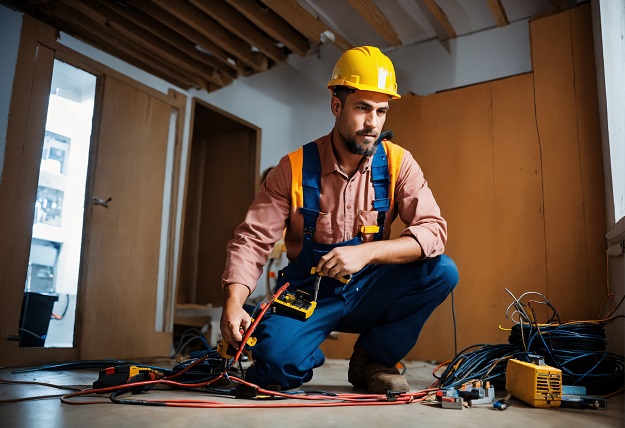Guide to AC Repair: Keep Your Cool All Year Round

Introduction:
When the scorching heat of summer hits, there’s nothing worse than a malfunctioning air conditioner. Whether it’s blowing warm air, making strange noises, or refusing to turn on altogether, AC problems can quickly turn your home into an uncomfortable sauna. But fear not! In this ultimate guide to AC repair, we’ll walk you through everything you need to know to diagnose, troubleshoot, and fix common issues with your cooling system.
The Importance of AC Maintenance
Regular maintenance is key to keeping your air conditioner running smoothly and efficiently. Without proper care, your AC is more prone to breakdowns and costly repairs. We’ll discuss the importance of scheduling routine maintenance checks and how they can help prevent the need for extensive AC repair down the line.
Common AC Problems and Their Causes
From refrigerant leaks to faulty capacitors, air conditioners can experience a range of issues that require professional repair. We’ll outline some of the most common problems homeowners face with their AC units and delve into the root causes behind them.
DIY AC Troubleshooting Tips
Before calling in the pros, there are several troubleshooting steps you can take to try and resolve minor AC issues yourself. We’ll provide a step-by-step guide to diagnosing common problems like poor airflow, strange odors, and unusual noises, along with practical solutions to address them.
Signs That Your AC Needs Repair
It’s essential to recognize the warning signs that indicate your air conditioner is in need of repair. Whether it’s a sudden spike in your energy bills or inconsistent cooling throughout your home, we’ll highlight the red flags that signal trouble and prompt action.
The Importance of Hiring a Professional AC Repair Technician
While DIY fixes can be tempting, some AC problems require the expertise of a trained technician. We’ll discuss why it’s crucial to enlist the help of a professional for complex repairs and how to find a reputable HVAC company in your area.
Cost Considerations for AC Repair
AC repair costs can vary depending on the nature and extent of the problem. We’ll break down the factors that influence repair costs and offer tips for budgeting and financing repairs if needed.
Preventative Measures to Avoid AC Breakdowns
Prevention is always better than cure when it comes to maintaining your air conditioner. We’ll share practical tips for extending the lifespan of your AC unit and minimizing the risk of unexpected breakdowns through regular upkeep and maintenance.
Upgrading Your AC: Repair vs. Replacement
In some cases, investing in a new air conditioner may be more cost-effective than repairing an old, inefficient unit. We’ll discuss the factors to consider when deciding between AC repair and replacement and offer guidance on choosing the right system for your home.
Environmental Impact of AC Repair
As concerns about climate change continue to grow, it’s essential to consider the environmental impact of AC repair and maintenance. We’ll explore eco-friendly options for servicing your air conditioner and reducing your carbon footprint while keeping your home cool.
DIY Maintenance Tips for Keeping Your AC in Top Condition
Prevention is key to avoiding costly repairs and extending the lifespan of your air conditioner. We’ll share some simple DIY maintenance tasks you can perform to keep your AC running smoothly, from cleaning or replacing air filters to clearing debris from the outdoor unit.
Conclusion:
Maintaining a comfortable indoor environment starts with a well-functioning air conditioner. By understanding the common issues that can arise and taking proactive steps to care for your AC unit, you can ensure reliable performance and avoid costly repairs in the long run. Whether you’re troubleshooting a minor problem or considering an upgrade, the tips and insights shared in this guide will help you keep your cool all year round.
FAQs:
1. How often should I schedule AC maintenance?
It’s recommended to schedule AC maintenance at least once a year, ideally before the start of the cooling season.
2. What are the signs of a refrigerant leak?
Common signs of a refrigerant leak include reduced cooling performance, hissing or bubbling noises, and ice buildup on the evaporator coil.
3. How long do air conditioners typically last?
With proper maintenance, air conditioners can last anywhere from 10 to 15 years. However, older units may require more frequent repairs and eventually need replacement.
4. Can I repair my AC myself?
While some minor issues can be addressed with DIY fixes, it’s generally best to leave complex repairs to trained professionals to avoid causing further damage.
5. How can I improve the efficiency of my air conditioner?
Simple measures such as sealing duct leaks, installing a programmable thermostat, and keeping filters clean can help improve the efficiency of your air conditioner and reduce energy consumption.




